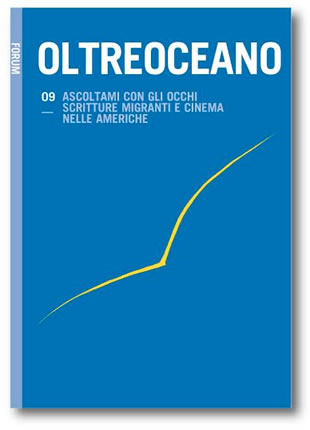El viaje del fracaso Triste, solitario y final
Keywords:
Soriano, Argentina, narrativa contemporáneaAbstract
El estudio presenta la primera novela del escritor argentino Osvaldo Soriano (1943-1997), publicada en 1973 y su relación con el cine que se dá tanto a nivel de los personajes de Hollywood – como Stan Laurel y Charlie Chaplin que protagonizan la narración –, como a nivel de ambiente – puesto que se trata de Hollywood – y a nivel del discurso narrativo. Ese refuerza el valor testimonial de una etapa histórica de un país, como Argentina, en el momento en que ya no hay fe en el progreso y en la narrativa que lo relata.
The Failure Travel: Triste Solitario y Final
The study presents the first novel by Argentine writer Osvaldo Soriano (1943-1997), Triste, solitario y final, published in 1973 and his relationship with the cinema. This element is due thanks to Hollywood characters Stan Laurel and Charlie Chaplin who starring the narration. The importance of film as narrative element is outlined in a moment of epistemological crisis.
Il viaggio del fallimento: Triste solitario y final
L’articolo offre uno studio dei legami con il cinema del primo romanzo dello scrittore argentino Osvaldo Soriano (1943-1997), Triste, solitario y final, pubblicato nel 1973. I protagonisti del testo, fra altri, sono Stan Laurel e Chalie Chaplin e la loro presenza rafforza questo legame. La crisi socio politica dell’epoca, vissuta dall’Argentina a fine XX secolo è tra le spiegazioni del fenomeno.
Downloads
References
Alazraqui, J. (1993): Cortázar y la narrativa argentina actual. En K. Kohut & A. Pagni (Eds.), Literatura argentina hoy. De la dictadura a la democracia (pp. 217-230). Frankfurt: Vervuert Verlag.
Benjamin, W. (1995): Angelus Novus. Torino: Einaudi.
Chandler, R. (1953): The Long Good-Bye. London: Houghton Mifflin & Hamish Hamilton.
Chandler, R. (1958): Playback. London: Houghton Mifflin & Hamish Hamilton.
Croce, M. (1998): Osvaldo Soriano. El mercado complaciente. Buenos Aires: Emilia Segotta.
Delgado Costa, J. (2003): Binarración y parodia en las primeras tres novelas de Osvaldo Soriano. Lewiston: E. Mellen Press.
Mizzau, M. (1984): L’ironia. Milano: Feltrinelli.
Montes Capó, C. (2004): Osvaldo Soriano. Una contrautopía posmoderna. Santiago de Chile: RIL.
Previtera, R. (2014): Triste, solitario y final. La encrucijada entre cine y novela negra. En A. M. Escribá & J. Sánchez Zapatero (Eds.), La (re)invención del género negro (pp. 467-475). Santiago de Compostela: Andavira.
Regazzoni, S. (1996): Osvaldo Soriano. La nostalgia de la aventura. Roma: Bulzoni.
Soriano, O. (1991): Ribelli, sognatori e fuggitivi. Roma: Manifestolibri.
Soriano, O. (1996): Triste, solitario y final. Buenos Aires: Sudamericana.
Sphar, A. (2006): La sonrisa de la amargura. La historia argentina a través de tres novelas de Osvaldo Soriano. Buenos Aires: Corregidor.
Todorov, T. (1973): Poétique. Paris: Seuil.
Downloads
Published
How to Cite
Issue
Section
License

This work is licensed under a Creative Commons Attribution-NonCommercial-ShareAlike 4.0 International License.
The authors undertake to comply with the following conditions, which are considered accepted at the time of submission of their contributions.
The sending of a text implies that it is unpublished and not submitted to be published elsewhere.
1. If accepted, the author shall confer on the publisher the right to publish and distribute it both in paper form and in the online electronic edition. The published articles will be downloadable and made available in open access.
2. Provided that it correctly indicates that the first publication took place in the journal Oltreoceano. Rivista sulle migrazioni the author has the right to: a) reproduce the article in separate extracts or collected in a volume; b) publish the article on their personal website or teaching site provided that these sites are of a non-commercial nature; c) deposit the article in online archives of a non-commercial nature, linked to the institution they belong to or as part of projects for the non-commercial dissemination and open access of scientific works.
The use of contributions by third parties, for commercial or otherwise unauthorized purposes, is not allowed. The publisher declines all responsibility for the unauthorized use of the material published in the journal.












